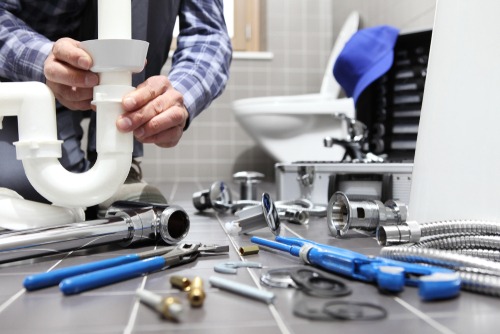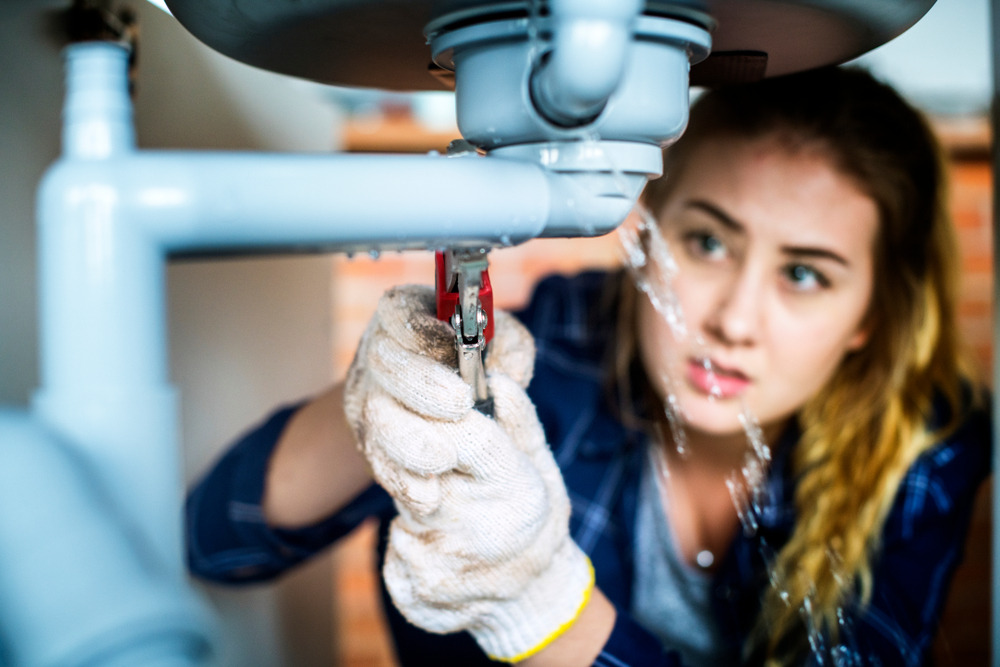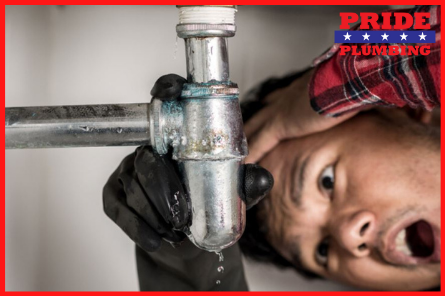All Categories
Featured

[/image][=video]
[/video]
Prior to you hurry to call a plumbing professional or make some bad Do it yourself selection, you could want to take an appearance at these pipes keys that can save you time and money. It is essential to know where you water turned off valve is in your home, as this can save you from even more serious damage when pipes issues happen.
Once whatever is turned off, take an appearance at your water meter. An ongoing motion on your water meter when all water resources are transformed off is a clear red flag that requires instant focus.
Slow drains pipes are typically a very early warning sign of a larger concern. It might suggest a blockage in the making, a trouble with your sewer line, and even tree origins infiltrating your pipelines. Rather than awaiting the drain to come to be totally blocked, take activity as quickly as you notice a downturn.

If these do not function, it may be time to contact an expert. Disregarding the issue can lead to much more significant and expensive troubles down the line. Understanding where your primary water shutoff valve is can save you from possible water damage in instance of a significant leakage or plumbing calamity.
Is Diy Plumbing Safe?
Make sure every household adult knows where the shutoff valve is and exactly how to use it. In the occasion of a serious leak, promptly transforming off your home's supply of water can lessen damage and offer you satisfaction while you wait on a plumbing professional to arrive. It's a popular idea that chemical drain cleaners are the utmost option for stopped up drains pipes a notion that couldn't be additionally from the reality.
The chemicals can corrode the internal cellular lining of the pipes, leading to damaged structures, leaks, and even pipe ruptureds. Moreover, the environmental ramifications of these chemicals are significant. They can seep right into groundwater and contaminate it, positioning dangers to local ecosystems. The rate of these possible damages far outweighs the expense of any short-term convenience these cleaners may supply.
These tools can effectively clear obstructions without triggering any damage to your pipelines. If these methods do not function, don't think twice to call a professional.

However, over-tightening can cause several issues, consisting of stripped screws and damaged screws, resulting in leakages or perhaps water damage. This usual error in DIY plumbing jobs can transform a small repair work into an expensive endeavor. Instead, pursue a snug fit. The suitable need to be tight adequate to avoid leaks however not so limited that it puts undue stress on the equipment.
Is Diy Plumbing Safe?
This need to guarantee a great seal without harming the fitting or the pipe. Remember, if a leak takes place, it's less complicated (and typically cheaper) to tighten up a suitable than to change a busted one. Plumbing technician's tape, or Teflon or thread seal tape, is a must-have tool for every single home owner. It develops watertight seals at pipeline strings, stopping leaks at joints and links.

Before connecting any type of installations, take a moment to cover a couple of layers of plumber's tape around the threads in a clockwise instructions. Ensure the tape covers all the threads and is covered firmly. This basic yet important step can save you from handling irritating leaks down the line.
Nevertheless, keep in mind that for bigger problems, expert help is always advised. Sink sprayers can be highly practical but can additionally come to be aggravating when they fall short to prolong completely or obtain stuck. This usual issue often takes place when the sprayer tube gets snagged on the shutoff valves. To avoid this from happening, think about mounting pipeline insulation.
Plus, during chillier months, pipe insulation can aid avoid your pipelines from cold and rupturing a situation that can bring about expensive fixings. When it pertains to securing fixtures like faucets, lots of DIY lovers naturally grab a plumber's putty. There's a choice that may offer you better silicone caulk.
Is Diy Plumbing Safe?
This flexibility enables it to accommodate mild shifts or movements without breaking the seal, supplying a more sturdy and resilient option. Simply keep in mind to let the caulk treatment entirely according to the maker's guidelines prior to exposing it to water to make sure the very best results. "Doping" in plumbing describes using pipeline dope, or pipeline joint compound, to the threads of pipes connections prior to they're screwed with each other.
Latest Posts
24/7 Plumber servicing
24/7 Plumber local to
Emergency Plumbing nearby